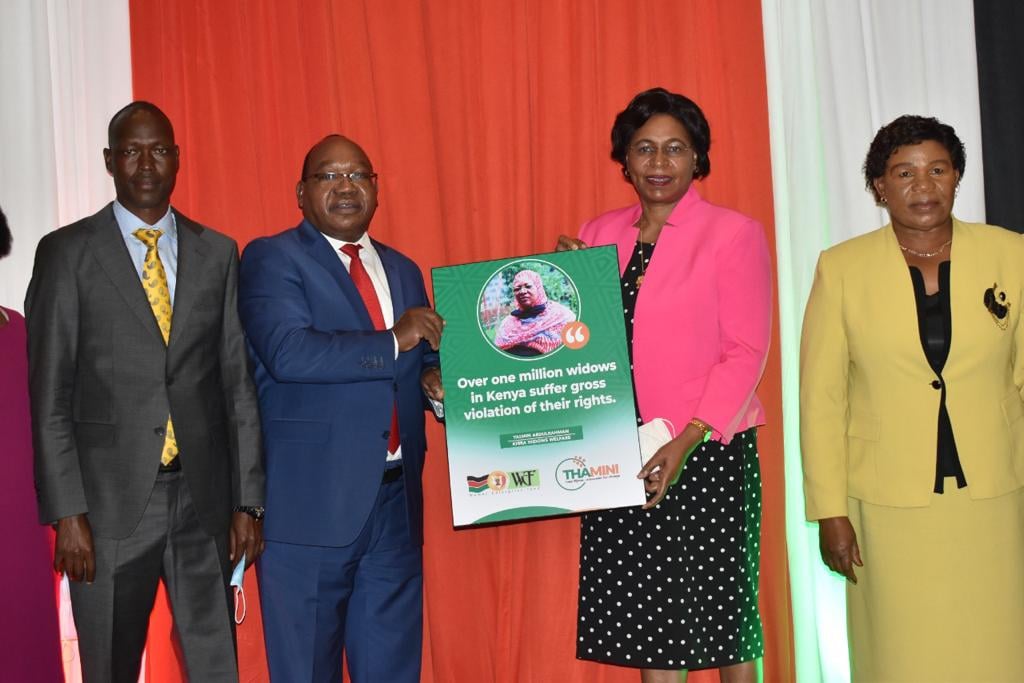Cabinet Secretary, Prof. Kobia Presents Statement on the Effects of the COVID-19 Pandemic on Girls in Kenya
Cabinet Secretary, Prof. Margaret Kobia yesterday presided over the presentation of a statement on the effects of the COVID-19 pandemic on girls in Kenya and a call for action by Kenya Girl Guides Association youth leaders.
During the meeting, the Kenya Girl Guides Association presented a 7-point statement of how the girls and young women in Kenya have been affected by COVID-19 which included Gender-Based Violence; menstrual period poverty; evident pay gap for women health workers; unemployment; higher poverty level; inequality at home; and inaccessibility to quality education by girls from marginalized communities.
The report is adding voice to the many reports on the issue of COVID-19 and, therefore, underscoring the importance of this matter to Governments and Stakeholders.
Prof. Kobia commended the efforts, initiative and commitment by the young people and the Kenya Girl Guides Association and for coming up with an apt topic of discussion at this critical time of the COVID-19 pandemic. She recognised that the pandemic was not just a health crisis but also a social one.
“The pandemic has unravelled not only as a health crisis but also as a social crisis where vulnerabilities facing girls are exposed. We have seen rising cases of GBV, teenage pregnancy, education inequalities among other forms of social injustices,” she said.
Recently, the Government launched a report on ‘Promises to Keep:
The Impact of COVID-19 on Adolescents in Kenya which indicated that over 300 girls throughout the pandemic have fallen pregnant and others have dropped out of school. The association put forward a call to action to:
- Prioritize the protection and safeguarding of all girls and young women from gender-based violence in all policies, information and guidance throughout the response.
- Prioritize sexual and reproductive health rights of girls.
- Increase women’s access to credit facilities and market opportunities.
- Strengthen partnership at all levels to ensue linkages between the adolescent well-being agenda and broader efforts to address young people’s livelihoods education and skills, as well as productivity.
- Ensure that targeted measures are taken to protect and support young women’s economic empowerment, comprising of social protection and paying attention to the unequal distribution of unpaid care and domestic work during this period.
- Prioritize learning continuity in the period of school closures and ensure that adolescent girls’ needs and lived realities are considered. This includes accessible and inclusive distance learning that will reach the most marginalized and limit inequalities in the education system.
Prof. Kobia welcomed the call to action and pledged support from the Government to address the challenges raised through policy interventions. She urged other stakeholders to join hands in the effort for greater impact.
By Naomi Moraa



